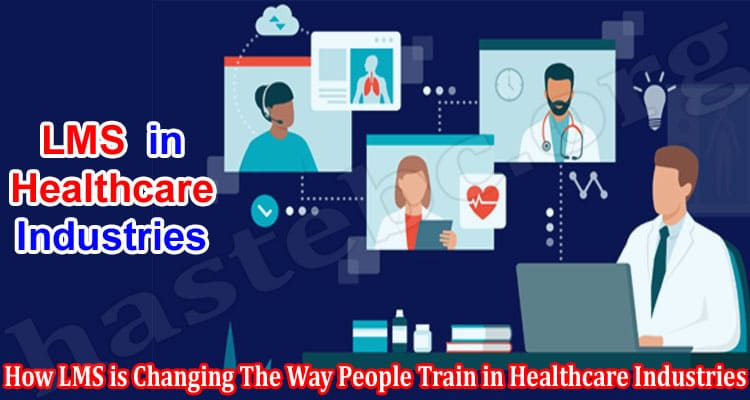LMS is Changing The Way People Train: Recent years have seen a significant change in training techniques. LMS platforms are the preferred strategy for transforming learning into an easily accessible, enterprise-wide technique of skill and knowledge acquiescence in almost all industries. LMS has significantly advanced and is steadily gaining favor in the healthcare sector as well. The causes are quite obvious: to meet the demands and expectations of hospitals today, as well as to ensure compliance with laws that are continuously changing, and to keep healthcare organizations and the medical community informed.
A software solution for medical facilities like clinics, doctor’s offices, and hospitals is referred to as a learning management system (LMS). Vendors of learning management systems (LMS) like Docebo provide comprehensive solutions that help medical business owners offer regular training courses to their employees, as well as certification and ongoing education. This is required to adhere to new healthcare regulations and keep up with how technology and business procedures are evolving. This article deals with how LMS helps in streamlining the training of employees in the healthcare sector:
LMS is a great supplement to conventional training:
LMS offers excellent assistance to instructor-led and in-person training. With additional inputs, research, statistics, peer evaluations, and current material that isn’t always available in conventional approaches with rigid courses, it increases classroom learning. Through LMS assistance, knowledge retention and recollection are enhanced.
LMS and the three A’s: An LMS makes learning possible anytime, anyplace, and anywhere. Due to their unpredictable and fluctuating schedules, healthcare professionals find this to be of significant benefit. An integrated LMS makes it possible to access necessary updates promptly and quickly as needed.
LMS and its Standard strategy: A standard approach to diverse tasks across the healthcare industry is offered by an LMS system. The learning management system (LMS) not only consolidates compliance with regulatory requirements but also serves as a knowledge base for training, assessment protocols, Standard operating procedures, patient monitoring, and other industry standards. LMS, users, and administrators may access a single location to streamline learning training and management, needs. Dynamic information sources are not necessary when using an LMS for healthcare. Innovation in technology has enabled the management of the most recent material from many sources, integrating it with the menu system, and providing users with access to the most relevant training. The seamless integration of training and daytime employment is made possible by on-demand LMSs without sacrificing efficiency. It becomes better. In addition to increasing staff engagement and patient pleasure, it boosts the confidence of healthcare professionals.
Evaluation and Repetition via LMS: The privilege of learning according to one’s own timetable is not available to trainees in traditional training especially to individuals in the healthcare sector, given their busy schedules.. Furthermore, going through a topic again is not an option. An LMS offers the possibility of taking the course at one’s own pace, going over it thoroughly and studying it repeatedly, and pausing and reviewing the section of choice till learning is satisfactorily finished.
Purpose Reiterated: An LMS in the healthcare sector eases handling the demands of new learning delivery, conducting refresher courses, staff certification, training, and changes in medical guidelines and principles. This can be done in a personalized method that is much more advantageous to the learners than traditional classroom instruction.
An Essential Tool: The current state of the healthcare industry necessitates the use of an LMS due to the diverse, continuous, and sophisticated demands placed on the system, its administrators, and medical personnel. Increasing patient trustworthiness is a top priority as compliance requirements become more demanding. A thorough LMS in the healthcare industry is a great resource for staying current on new health concerns, regulatory standards, modern technological breakthroughs, patient experience metrics, and information security.
Conclusion:
LMS today has significantly improved training and provided benefits to the healthcare industry. Learning has become simpler as a result of LMS. It is challenging to finish training the conventional way because of the unpredictable timetables and tight schedules of healthcare employees. Additionally, research findings, data, and laws are being developed daily in the health industry. LMS solutions make it simple to update modules as needed with pertinent information. As a result, it can be claimed that LMS solutions are setting the standard in the healthcare industry.

Caroline is a dedicated writer with a passion for keeping readers informed. Specializing in providing the latest news updates and unbiased reviews, she strives to deliver accurate and insightful content. With a keen eye for detail and a commitment to journalistic integrity, Caroline ensures that her readers are always well-informed. Stay tuned for her latest articles to stay up-to-date on current events and trends.




